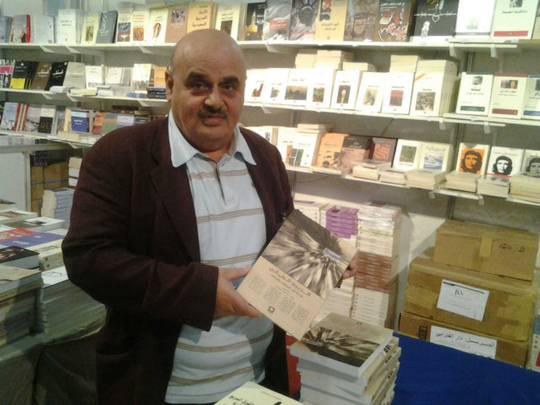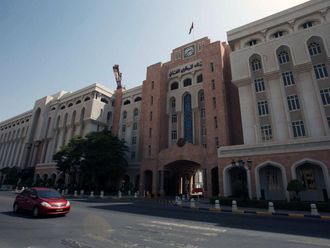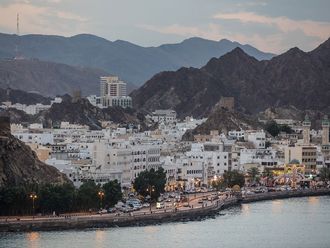
Muscat: To be, or not to be — the phrase from William Shakespeare’s Hamlet aptly fitted the eleventh hour dilemma for the organisers of the Muscat International Book Fair as a Lebanese publisher displayed 250 copies of a book detailing Arab Spring ripples in Oman. The anxiety stemmed from the fact that the book was edited and compiled by activist Saeed Al Hashemi, who is currently in a high-security prison.
As the exhibition opened on February 26, Oman’s Minister of Information Abdul Munem Al Hassani had categorically said that no book would be banned from the exhibition. “A ban would give any book needless publicity. We have decided this year not to bar sale of any book at the exhibition. The days of banning are over,” he was quoted as saying in the media after inaugurating the 18th edition of the annual exhibition.
Publishers who took part in the 11-day exhibition, which ended on Friday, were unanimous in their opinion that no book faced a ban this year. There were however contradictory claims as to whether those assertions were true.
Local journalists claimed to have witnessed the initial dilemma of officials about allowing the sale of Saeed Al Hashemi’s book on the protests, sit-ins and demonstrations in 2011 in Oman. “The publishers of Al Hashemi’s book — Lebanon’s Dar Al Farabi — were told before the formal inauguration not to display [Al] Hashemi’s book,” Turki Al Beloushi, founder of news portal Al Balad, told Gulf News.
Half an hour later, however, an Information Ministry official came and told the publishers that they could display the book and there was no ban on doing so, Al Beloushi said.
Al Beloushi concurred that no book seemed to have been banned at this year’s fair.
However, when asked why he was taken aside by officials before the inauguration, Qasim Barakat of Dar Al Farabi denied he was asked to avoid display of the book. “I was told about something else,” he said without elaborating, and reiterated that his company had faced no problems in selling the said title. “We sold 250 copies and ran out of stock in two days,” he said, adding that it was difficult to get additional stocks from Beirut during the exhibition.
Critics, however, suggested that copies of the book could have been bought in bulk to pre-empt mass circulation. Gulf News could not verify this claim.
Author Al Hashemi’s wife Khowla is ecstatic about the strong demand for the book at the exhibition. “I am really very happy that people could buy the book here,” she told Gulf News. However, she felt sad that no more than 250 copies were available. “Those who want to buy can order online and the book will also [be] available at the Abu Dhabi Book Fair,” she said.
There are others who dispute the claim that no books were banned this year.
While Al Hashemi, who had to be admitted to hospital last month after his health deteriorated during a hunger strike in the high-security Central Prison in Sumayil, was lucky to have his book displayed, another jailed activist and Sultan Qaboos University student, Mohammad Al Sazari, wasn’t so fortunate.
“His book was not allowed to be taken out of the Muscat International Airport when the publisher brought it from Beirut,” claimed Khalfan Al Badwawi, an online activist who is facing charges of insulting the Sultan as well as violating the country’s cyber laws.
Al Badwawi said that since Al Sazari was in prison his family members enquired with the publisher why his book was not at the exhibition. “The publishers informed the family that the book consignment was not released at the airport.”
Al Badwawi said that he had sent a message about the issue to a very senior official on his Facebook page, informing that copies of the book had been confiscated at the airport.
Nadeem Marwa of Al Intishar Al Arabi of Lebanon, publishers of Al Sazari’s book, however said that while some books had been banned from being displayed at the exhibition in previous years, “there was no ban at all” during the latest edition.












